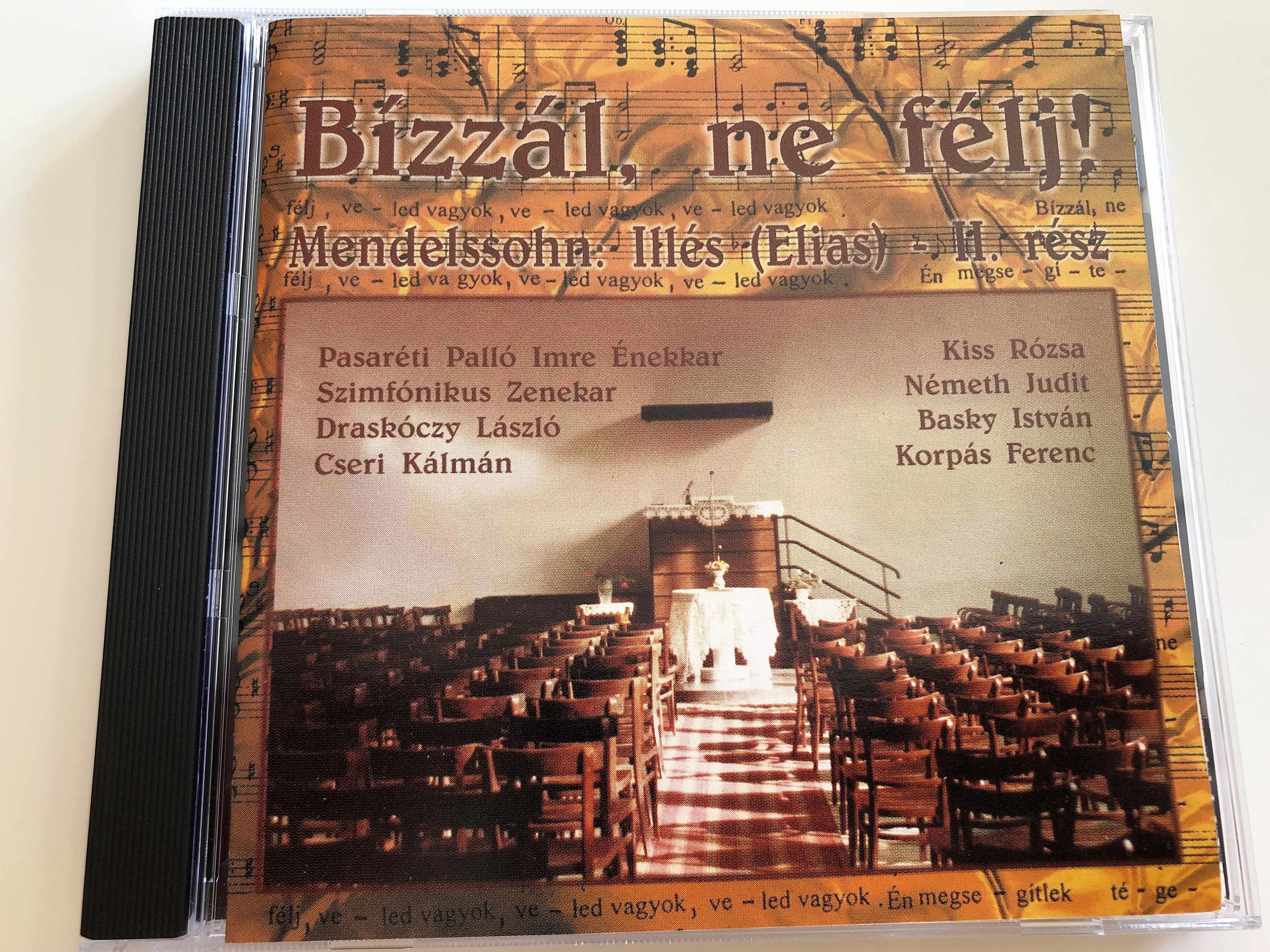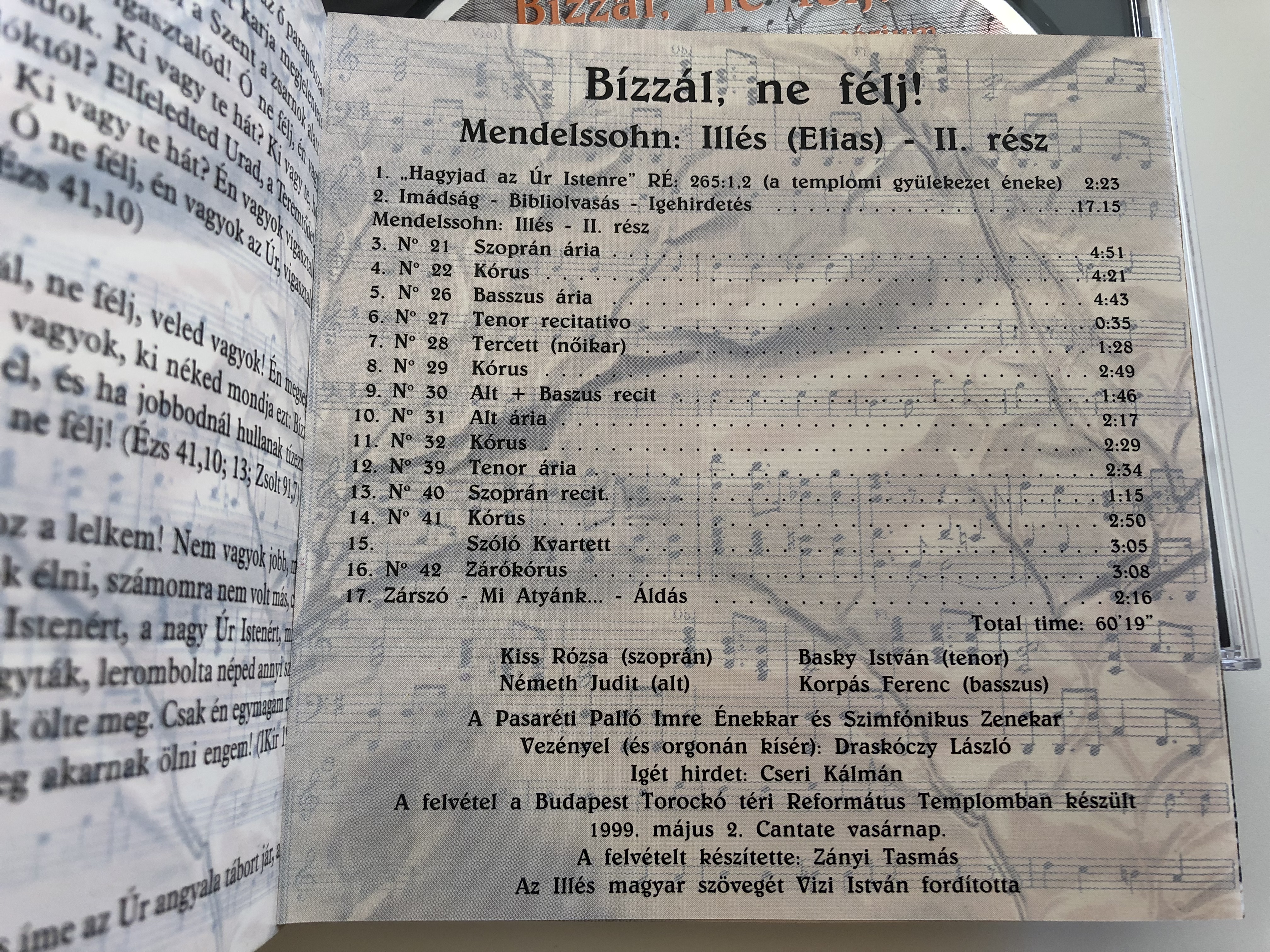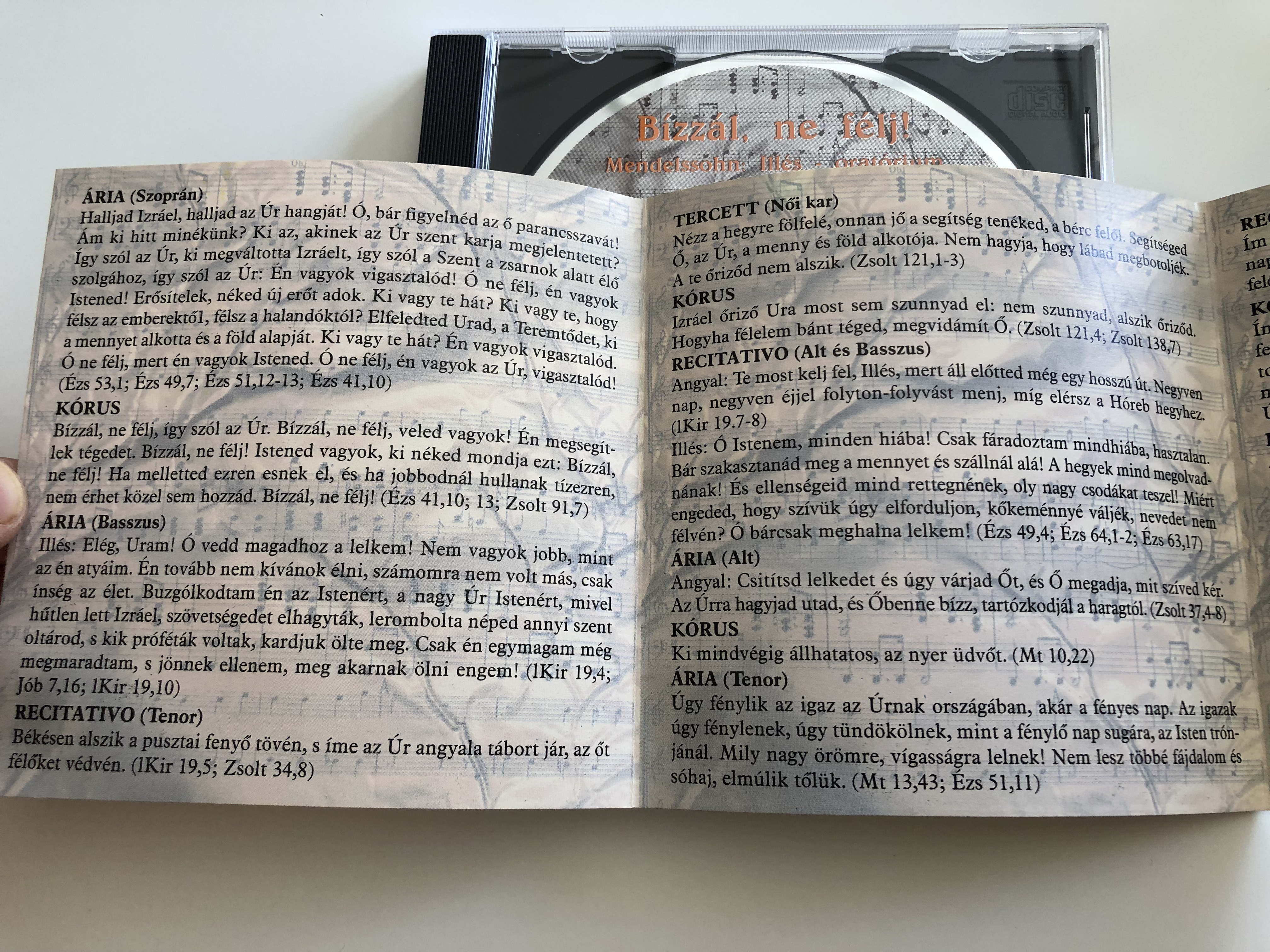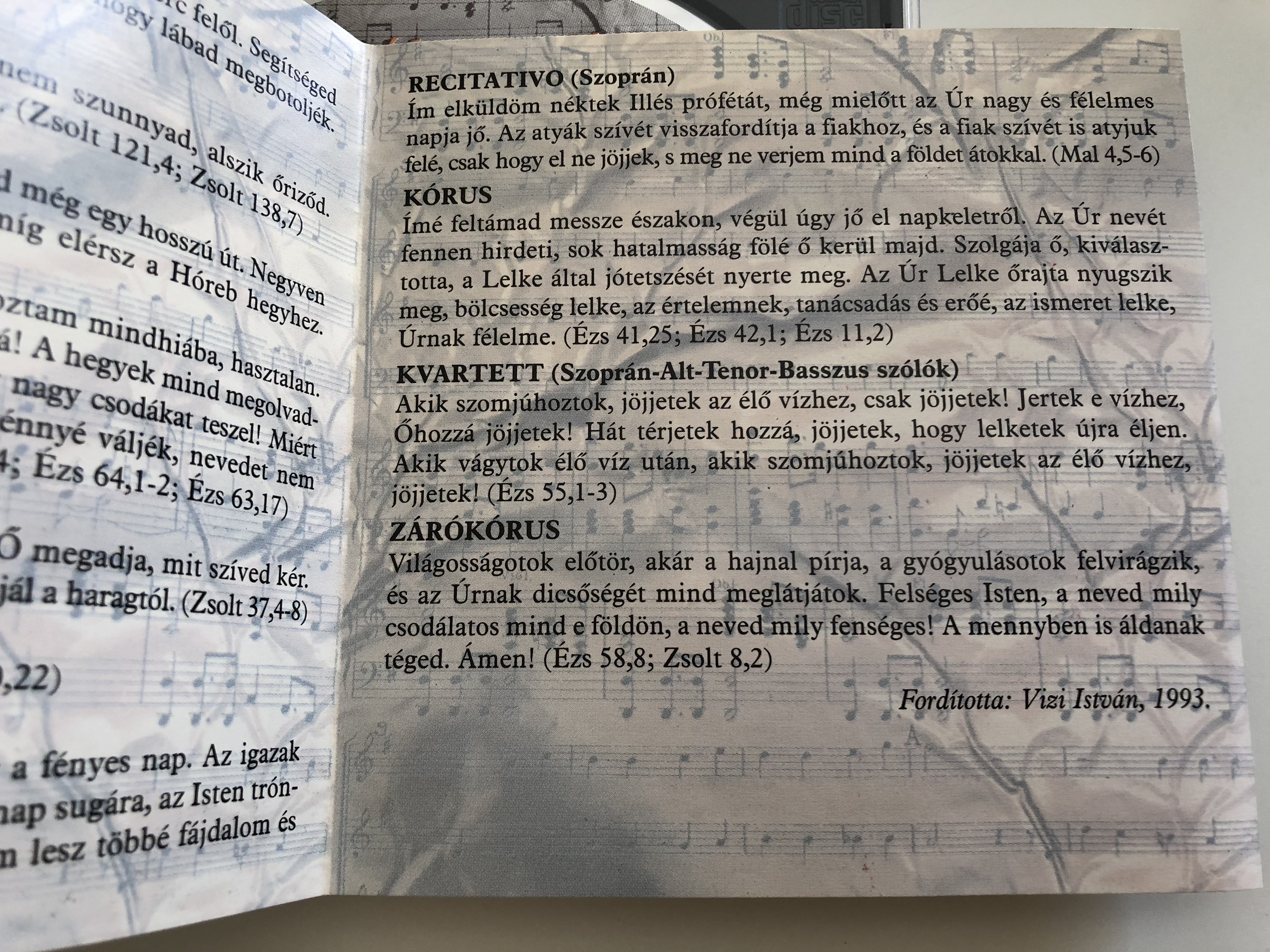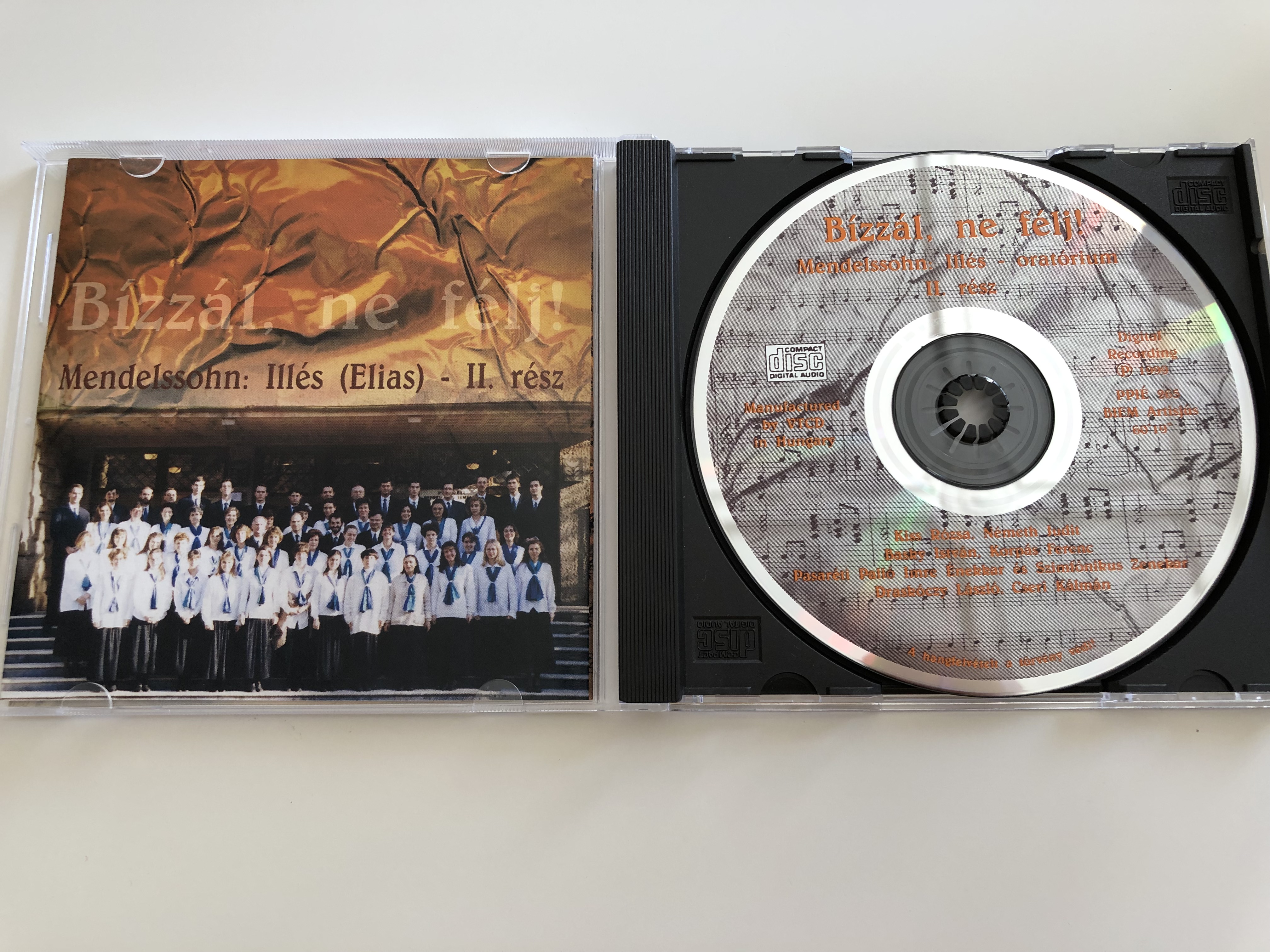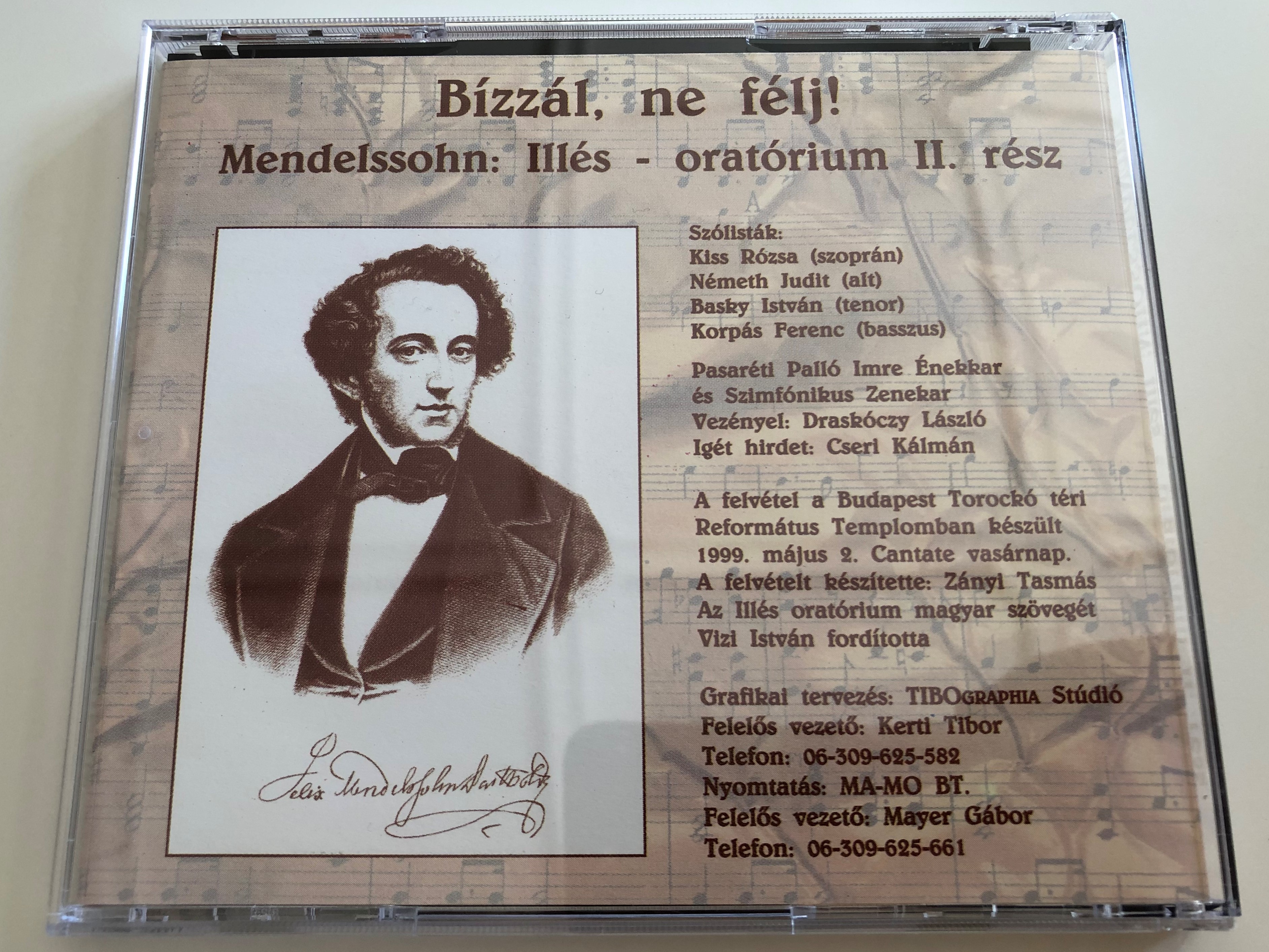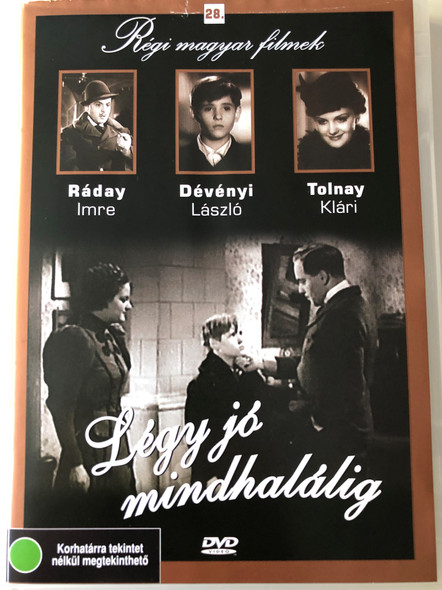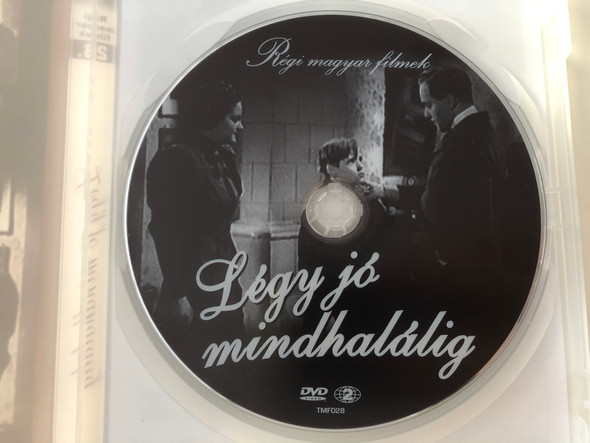Description
Bizzál, ne féj! Mendelssohn. - Illés (Elias) - II. rész
Pasaréti Pallo Imre Énekkar
Kiss Rózsa, Szinfónikus Zenekar, Németh Judit, Draskóczy László, Basky István, Cseri Kálmán, Korpás Ferenc
AUDIO CD 1999
UPC 5999881753042
FELIX MENDELSSOHN
Tracklist:
1."Hagyjad az ÚR Istenre" RÉ: 265:1.2 (a templomi gyülekezet éneke) 2:23
2. Imádság - Bibliaolvasás - Igehirdetés 17:15
Mendellsohn: Illés - II. rész
3. N 21 Szoprán ária 4:51
4. N 22 Kórus 4:21
5. N 26 Basszus ária 4:43
6. N 27 Tenor recitativo 0:35
7. N 28 Tercett (nőikar) 1:28
8. N 29 Kórus 2:49
9. N 30 Alt + Basszus recit 1:46
10. N 31 Alt ária 2:17
11. N 32 Kórus 2:29
12. N 39 Tenor ária 2:34
13. N 40 Szoprán recit 1:15
14. N 41 Kórus 2:50
15. Szóló Kvartett 3:05
16. N 42 Zárókórus 3:08
17. Zárszó - Mi Atyánk...-Áldás 2:16
Total Time: 60:19
Kiss Rózsa (szoprán)
Németh Judit (alt)
Basky István (tenor)
Korpás Ferenc (basszus)
A Pasaréti Palló Imre Énekkar és Szimfónikus Zenekar
Vezényel (és orgonán kísér): Draskóczy László
Igét hirdet: Cseri Kálmán
A felvétel a Budapest Torockó téri Református Templomban készült
1999. május 2. Cantate vasárnap.
A felvételt készítette: Zányi Tamás
Az Illés magyar szövegét Vizi István fordította
Jakob Ludwig Felix Mendelssohn Bartholdy (3 February 1809 – 4 November 1847), born and widely known as Felix Mendelssohn, was a German composer, pianist, organist and conductor of the early Romantic period. Mendelssohn's compositions include symphonies, concertos, pianomusic and chamber music. His best-known works include his Overture and incidental music for A Midsummer Night's Dream, the Italian Symphony, the Scottish Symphony, the oratorio Elijah, the overture The Hebrides, his mature Violin Concerto, and his String Octet. The melody for the Christmas carol "Hark! The Herald Angels Sing" is also his. Mendelssohn's Songs Without Words are his most famous solo piano compositions.
A grandson of the philosopher Moses Mendelssohn, Felix Mendelssohn was born into a prominent Jewish family. He was brought up without religion until the age of seven, when he was baptised as a Reformed Christian. Felix was recognised early as a musical prodigy, but his parents were cautious and did not seek to capitalise on his talent.
Mendelssohn enjoyed early success in Germany, and revived interest in the music of Johann Sebastian Bach, notably with his performance of the St Matthew Passion in 1829. He became well received in his travels throughout Europe as a composer, conductor and soloist; his ten visits to Britain – during which many of his major works were premiered – form an important part of his adult career. His essentially conservative musical tastes set him apart from more adventurous musical contemporaries such as Franz Liszt, Richard Wagner, Charles-Valentin Alkan and Hector Berlioz. The Leipzig Conservatory,[n 3] which he founded, became a bastion of this anti-radical outlook. After a long period of relative denigration due to changing musical tastes and antisemitism in the late 19th and early 20th centuries, his creative originality has been re-evaluated. He is now among the most popular composers of the Romantic era.
